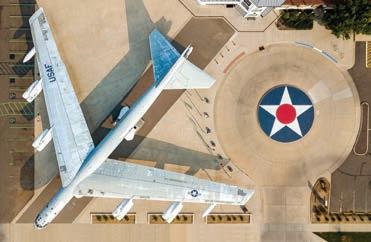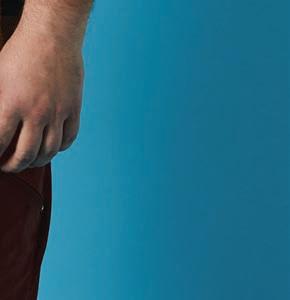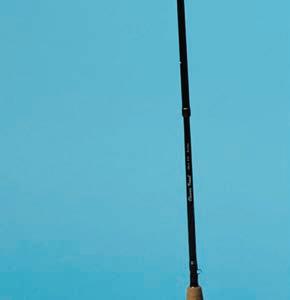
6 minute read
SEE SPACE PLANE
Polis signs transportation bill that adds to costs of gasoline, rideshares
BY JESSE PAUL THE COLORADO SUN
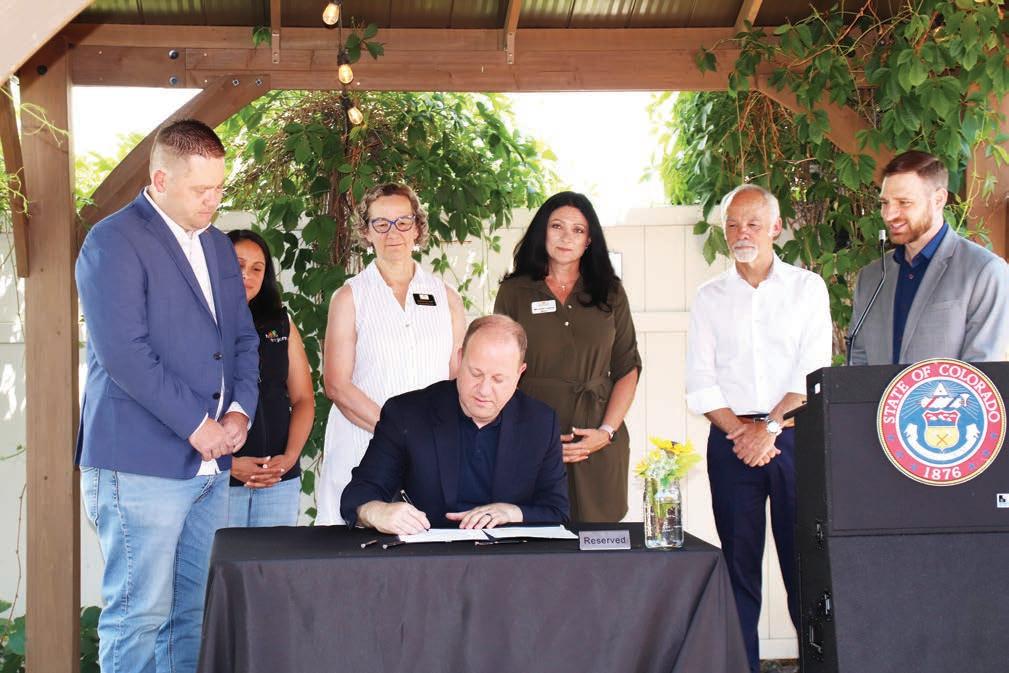

FLOYD HILL — Shaded by an Interstate 70 bridge that has fueled steering-wheel-pounding rage for generations, Gov. Jared Polis on June 17 signed a transportation fee and spending bill that seeks to inject more than $5 billion into Colorado road and transit projects over the next 11 years.
“Everybody knows we need to fi x it,” Polis said of Colorado’s road and highway system before signing Senate Bill 260 under the curved I-70 bridge at the bottom of Floyd Hill, a structure over Clear Creek that chokes traffi c and ruins the best-laid plans of skiers, snowboarders, hikers and bikers every weekend. “If it was easy it would have been done already.”
Colorado lawmakers have been trying to solve the problem of the state’s limited transportation funding for years, proposing tax hikes and bonding and committing more existing money from the state budget to the problem. But the efforts to fi nd money in the couch cushions to supplement a 22-cent gasoline tax that hasn’t increased since 1992 have either not been successful or not been suffi cient to tackle the breadth of the issue.
Senate Bill 260 was Democrats’ solution to the funding gridlock, allowing them to raise money without voter approval.
Fees under the measure begin next year. They include: • 2 cents per gallon on gasoline and diesel fuel starting in July 2022 that increases 1 cent every year up to 8 cents • 27 cents on deliveries, including those from Amazon, FedEx and Grubhub • 30 cents on Uber and Lyft rides starting in 2022 that would increase based on the federal Consumer Price Index. The fee would be cut in half for people carpooling in a rideshare, or riding in an electric vehicle.
In addition to the funding mechanisms in the measure, there are also requirements that the Colorado Department of Transportation take greenhouse gas emissions reduction goals into account when planning future projects. State offi cials also must consider the impact of transportation work on communities where low-income people, minorities or housing-cost-burdened families make up 40% of the population under the new law.
Finally, the bill emphasizes — and spends money on — an electric-vehicle future, as well as mass transit, including a potential Front Range passenger rail system.


A COVID-19 relief bill that the state legislature passed this session, which provides temporary sales tax relief to restaurants and bars, became law when Gov. Jared Polis signed it June 14 at the Glenn Bar and Grill in Northglenn. Also present for the ceremony were two prime sponsors of the bill, state Rep. Kyle Mullica from Northglenn and state Rep. Kevin Van Winkle from Highlands Ranch. From left, Mullica, Northglenn City Councilors Julie Duran Mullica and Katherine Go , Polis, Northglenn
Mayor Meredith Leighty, Joe Vostrejs, co-owner of the Glenn Bar and Grill, and Van Winkle. PHOTO BY LIAM ADAMS




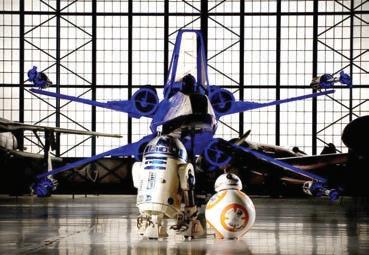





SPACE PLANE
FROM PAGE 1
and the developments that we’ve been working on in New Zealand this week,” he said. “We do it as a paradigm shift in the spacefl ight industry.We think that this will enable vastly more capability in spacefl ight. Bringing this to a global market is important for us. We think it’s an important strategic difference in doing that we can to expand this and bring this to a global audience.”
Milestones of spaceport
Adams County began its pursuit for a spaceport site operator license through the FAA offi ce of commercial space in 2011 and received an operator license in August 2018. The state renamed the sleepy Front Range Airport in Watkins and gave it new purpose as the Colorado Air and Spaceport.
Adams Deputy County Manager Jim Siedlecki said, “With such a robust aerospace industry in Colorado there was immediate interest from potential partners domestically and across the globe.”
Colorado Air and Spaceport already established a relationship with PD Aerospace from Japan. It’s building a reusable horizontal take-off and landing passenger spaceplane that will fl y above the earth’s atmosphere sitting in zero gravity for up to 10 minutes and, as the earth rotates, will fl y back down landing in Paris within 60 to 90 minutes. That project’s potential completion is in 2024.
Reaction Engines from the United Kingdom is on site at Colorado Air and Spaceport developing a hybrid rocket engine and a hybrid or a proprietary spaceplane. They are also are conducting breakthrough testing on its thermal management system on the east side of the spaceport.
An addition to spaceport is New Frontier Aerospace Co., developing a hypersonic space aircraft that will have the capability to deliver important packages quickly around the earth within the atmosphere.
“New Frontier is specifi cally working on rocket engine testing and controllability testing for its vehicle. So, we’re very excited to have them on board as well,” said Dave Ruppel, director of Colorado Air, and Spaceport.
Colorado Air and Spaceport is one of the 12 FAA-licensed commercial spaceports in the United States. Of the 12, eight are horizontal launch-
This story is from The Colorado Sun, a journalist-owned news outlet based in Denver and covering the state. Used by permission. For more, and to support The Colorado Sun, visit coloradosun.com.
